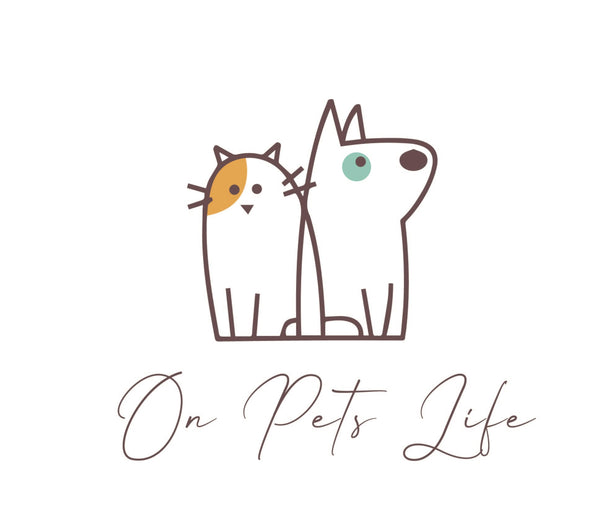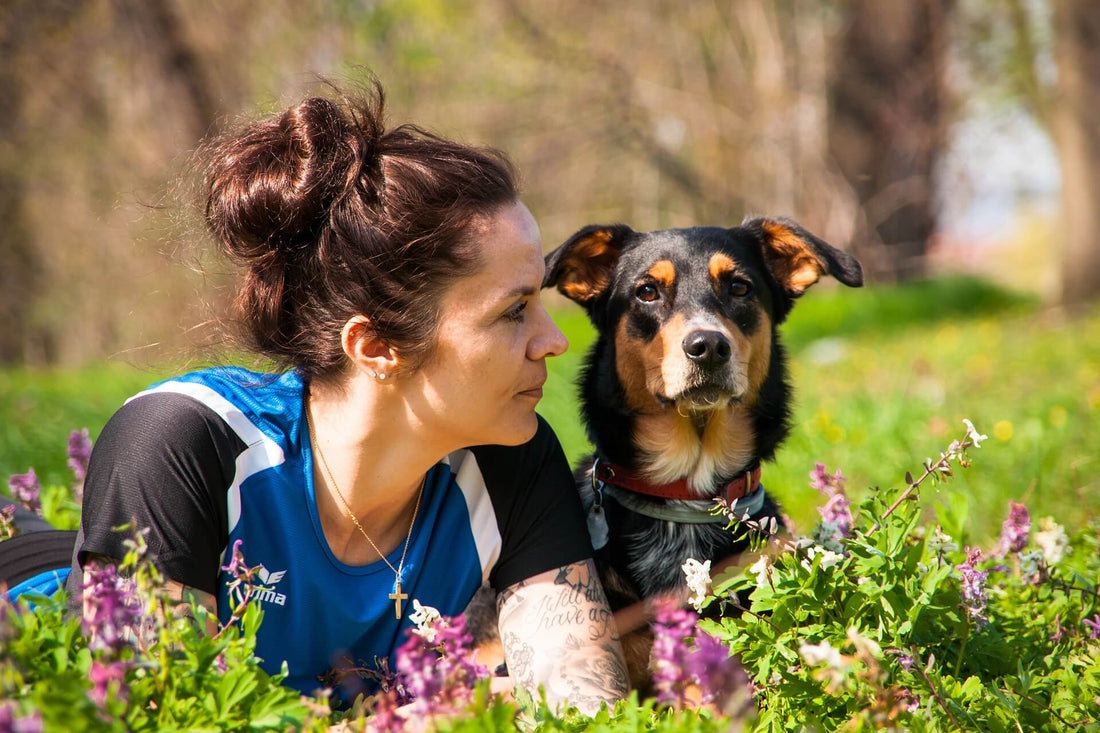You will surely find that more and more people keep pets nowadays.
In the community, in the park, there are many people walking their dogs on a leash. Some are elderly people in their 60s and 70s who walk slowly behind the dogs; some are children in their teens, jumping and running with their dogs - it's a beautiful sight.
People who don't have pets may say: "It takes a lot of time, energy and money to keep pets." As everyone knows, in the process of getting along with pets, it seems that pets need our care, but in fact it is that we need pets .
So why do we need pets?
1. Pets provide us with 'Contacting consolation'
Ten thousand years ago, when people began to try to keep pets, they even chose foxes as pets, but because foxes were too smart and unfaithful, they turned to dogs. We can see that whether it is a dog, a fox, a cat or a rabbit, most of the animals people like are furry. This is because pets can provide us with 'Contacting consolation'.
So what is 'Contacting consolation'?
After World War II, European orphanages took in many babies whose parents had died. Despite the good support conditions in orphanages, many babies still die. At first it was thought that it might be due to poor hygiene, so while caring for the children, the nuns were required to wear veils and not be allowed to hug and kiss them, and curtains were drawn between the cribs. However, the situation is even worse. But there was a nun whose babies almost every survived, and when people asked her, she said, "Sorry, I'm breaking the rules, they're so cute, I can't help hugging and petting them all the time."
During the same period, psychologist Harlow performed the famous Harlow experiment. He separated the newborn rhesus monkey from its mother, and made two different monkey mothers with wire and flannel respectively, and found that:
Despite putting the feeding bottle on the wire monkey mother, the little monkeys still choose to snuggle on the flannel monkey mother for the first time after drinking milk. Moreover, the experiment also found that the monkeys who have been stripped of their mother's love since childhood, will lack group behavior, not fit in groups, aggressive, shy to explore the environment, and unable to adapt to the future life.
Psychologist Harlow argues that contact comfort is important for baby monkeys. Although the experiment was carried out on monkeys, many psychologists believe that it could be applied to human infants as well. Humans love furry little animals, and like to hug and pet their furry friends, maybe as Harlow said: furry pets meet our need of 'Contacting consolation', and holding them will make us feel warm and safe.

2. Pets always make you feel relaxed and happy
Many people describe time with their pets this way: "Whenever I come home after a long day at work and put my arms around my dog, the stress and exhaustion I feel are gone." I also have a friend who said: "Whenever I am very tired from working overtime, I turn my head and look at the cat not far away for a while, and I feel inexplicably happy, as if I have the energy to continue working again."
This happy, relaxed feeling that comes from looking at or touching your pet is not for no reason, it is actually related to something called 'Oxytocin'.
Oxytocin, a mammalian hormone, is a peptide hormone secreted by the posterior pituitary gland and synthesized by the paraventricular and supraoptic nuclei of the hypothalamus. Its physiological functions are: stimulate the mammary gland to secrete milk, promote the contraction of uterine smooth muscle during childbirth, and promote the role of maternal love. In addition, it reduces the levels of stress hormones such as adrenal ketones in the body to lower blood pressure.
Oxytocin is also present in men, and studies have found that oxytocin levels rise when fathers play with their children. And the higher the level of oxytocin in the body, the more time fathers spend with their children, and the more love they show.
Oxytocin allows people to regulate their bodies in the face of stress. Therefore, the oxytocin secreted by the interaction with the pet can make the owner feel relaxed and happy, reduce stress and create a sense of belonging.
Researchers at Azabu University in Japan proved this with experiments: they let 30 groups of dogs play with their owners in the room. During this period, both the dogs and their owners will make eye and body contact. After 30 minutes, the researchers took urine from the dog and the owner to test for oxytocin levels. It found that oxytocin levels increased in both the dogs and their owners, and the dog owners had a three-fold increase in oxytocin levels. This theory has gradually been accepted by the medical community.
According to the British "The Times" report, it may appear on the doctor's prescription in the future - "Having a puppy will be a great help in treating your depression." In his recently published book, Dr. David Slager says that keeping pets and giving them love is undoubtedly a better cure for mental illness than injections and medicines.
3. Pets can stimulate the most primitive emotions in your heart
Many owners will call their pets "sons" and "daughters" in life, or call themselves "dad", "mother", "grandpa", "grandma" in front of pets. In other words, in getting along with pets, many owners have actually regarded pets as their children and family members.
The reason is that pets awaken the most primitive emotion in our hearts - the connection between parent and child.

You will be very keen to have intimate interactions with your pets
Zoologists believe that animals and human babies have many similar appearance characteristics, such as eyes occupying a larger proportion of the face, and the head accounting for a larger proportion of the limbs, etc. These characteristics can trigger some very primal emotions deep within humans that make people want to protect them and take care of them. This is also the instinct of human beings to nurture, and it is a need for biological survival and evolution. When people see pets such as cats and dogs, it is like seeing a baby. The brain will secrete feel-good dopamine, which makes people's attitudes become friendly and gentle.
When interacting with the environment, babies use their mother as a "safety base," returning to their mother for solace in a fall or frustration; after finding solace, they go out again to explore.
Scientists from the University of Veterinary Medicine Vienna found that owners also act as a "safe base" for dogs, and the bond between pets and owners is much like the parent-child relationship of humans. The researchers conducted a set of experiments with pet dogs: Under the three conditions of "the owner is absent", "the owner is present, silent", and "the owner is present, the reward is given", let the pet dog win the food reward by playing with the toys, so as to observe the pet dog's motivation and emotion. The study found that dogs were much less motivated to play and win rewards when their owners were away. And if the owner was present, even silent, the dog was much more motivated to play and win the reward.
And this result is similar to the relationship between human babies and their mothers. Babies feel at ease when their mother is present, even if they are not talking. And when the mother is not present, the baby may become restless, crying, and silent. This kind of parent-child connection between pets and humans makes people feel like they have a child and thus have pets in mind.
4. Pet companionship also helps maintain physical and mental health
More and more research is now focusing on the effects of pets on people's physical and mental health.
Researchers at The University of Chicago have found that interaction with pets can make us feel less lonely, make us more social, and improve our mental health.
Australian surveys show that, compared with people without pets, pet owners are significantly less likely to suffer from diseases such as high blood pressure and high blood lipids.
Professor Karen Allan of the State University of New York tested 48 stockbrokers who lived alone and suffered from high blood pressure. Allan gave half of them pets, while the other half took medication to lower blood pressure. After 6 months, all were subjected to a stress test, in which pet owners maintained normal blood pressure in the face of stress, while those without pets had significantly higher blood pressure. After learning of the test results, almost everyone who took the test decided to get a pet. Allan's advice to these people is not to simply keep pets, but to give love to pets, the treatment will be more effective.
Stroke patients are embarrassed to speak because of their impaired ability to speak, but that's not a problem if you're talking to a dog.

You can talk to your cute pets about your troubles
Psychiatrist Paul Kirribe said: "If a person with mental illness can take the dog out for a walk and even play with the dog like everyone else, then he's already on the path to being a normal person."
After years of studying the relationship between human health and pets, the famous British psychologist Dr. Joan Nicholas believes that pets can give people a complete and thorough sense of trust. "It's intimacy, not beauty or wealth, that makes you feel truly happy," she said. Nicholas' research also found that if people are experiencing the loss of a relative or friend, communicating with their pets can be a good way to deal with grief, and pets can play a very good role in easing grief.
For the past 21 years, the British Pet Therapy Association has been working to provide pet therapy to a variety of institutions such as hospitals, shelters, nursing homes, psychiatric institutions, and more than 100,000 people interact with pets in this program every week.
Maureen Haynes, director of the Pet Society, said: "Typically, patients have a sense of loneliness and don't like to talk, and contact with pets makes it easier for them to open up." For example, people with depression generally feel lonely, but it's much better with a dog around because pets can provide a great start to communication.
Of course, we need pets for more than these reasons.
There are also some reasons why we need pets - no longer lonely; get rid of powerlessness; relieve tension and stress; maintain a happy and cheerful mood; protect yourself from social harm; respect and understand the importance of life; increase conversations with friends; get to know more neighbors; simulate parent-child relationship; feel loved and cared for; go out often; exercise often; life becomes regular; weight loss is remarkable; trust and love can be without scruples.
So what is the reason you need a pet? Welcome to comment and leave a story about you and your pet~
References:
1. Headey B, Na F, Zheng R. Pet Dogs Benefit Owners' Health: A 'Natural Experiment' in China[J]. Social Indicators Research, 2008, 87(3):481-493.
2. Schultz K. Illinois law to benefit pet owners in disasters[J]. Dvm the Newsmagazine of Veterinary Medicine, 2007.

